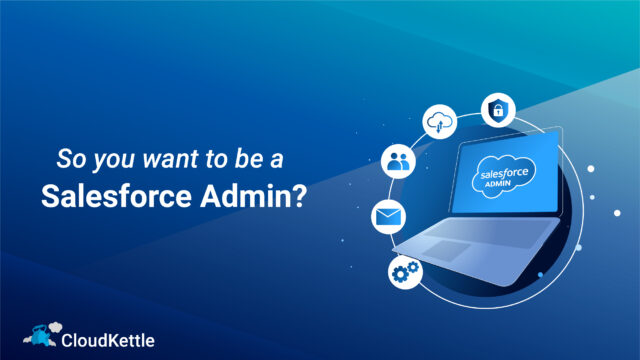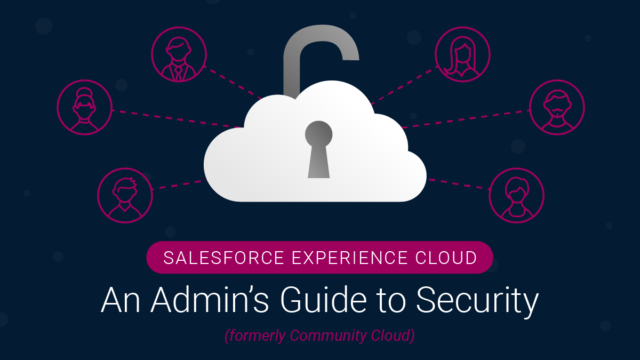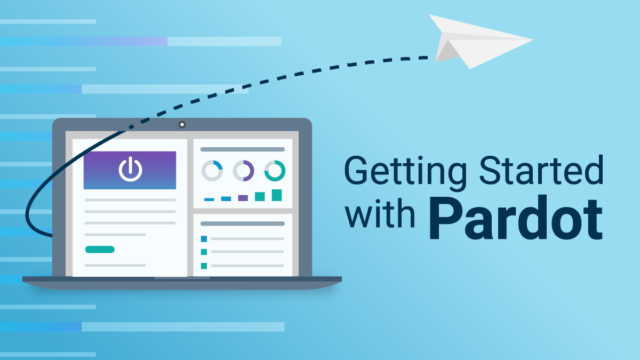Pass Your Admin Exam and Get Started in Your Salesforce Career
You’ve done the research and crunched the numbers. You know that the Salesforce economy is going to create 9 million more jobs by 2026 and you realize that you could be riding the wave into an exciting career with limitless opportunity. Amazing. Now… where to start?
I recently completed my Salesforce Administrator Certificate, so in the spirit of passing along some real world information, I thought I would share how the whole certification process works and what steps I took to study for and complete my exam.
Luckily for me, CloudKettle is incredibly supportive of employees achieving Salesforce certifications. Our exam fees are subsidized and we’re given time to study and complete exams. We are also put through an 8-session training program where one of our Salesforce Leads takes us through the recommended materials. But even if you don’t have the same level of support at your disposal, there are many online resources that can help you on your way.
Here are the Top 10 steps that I took (some required and some just recommended) to add “Certified Salesforce Administrator” to my list of credentials:
1. Sign up for a Trailhead Account – Trailhead is Salesforce’s free, hands-on, digital platform to help people learn how to use the many feature of Salesforce. It has a series of online tutorials that coach you through concepts, as well as projects and tasks to complete as you level up on your path from Scout (the first level) to Ranger (the highest level).
2. Check with your employer to see if they offer any training/support – You may just be looking to grow your Salesforce skills on your own time, and that is great. But it’s worth mentioning that many employers do see the value of Salesforce credentials and would be happy to subsidize training costs or exam fees. It never hurts to check with your boss to see if you can integrate your Salesforce training into an existing professional development or learning plan.
3. Look into Salesforce Community Groups for support. I’m part of the Halifax Group, and there are groups all over the world that provide group support to people within the Salesforce community (or “Ohana” as it’s often called). There are meet ups and online check-ins, and it’s a great place to make connections as you explore career opportunities.
4. Sign up for a secondary training site – This is by no means a requirement, but I found a lot of value in the training resources beyond Salesforce itself. Focus on Force is the service I used. Each of the tests completely explain each of the answers and link to additional materials, so it really helped me learn as I studied. There are also courses from Udemy and Mike Wheeler that people have found helpful.
5. Salesforce Certification Days – Another free resource from Salesforce, these 5-hour courses review all of the important themes that will be covered in the exam, and are a great resource to ensure you’re feeling confident in the material. They also often share a discount code at the end of the sessions to give you a significant chunk of $ off the price of your exam.
6. Study Study Study – Full disclosure, I failed my exam the first time. (*Insert facepalm emoji here*) I was nailing the practice tests on Trailhead, but in hindsight realized I had probably just memorized a bunch of answers and not truly understood some of the more complex topics. Through the practice tests, I was able to get a report on how well I was doing on each of the sections, and focus on those areas where I needed to improve my score.
7. Give yourself time to actually understand how/why different features would be used – You can create orgs in Trailhead (test systems where you can play around without impacting any real business data), so try to take the time to actually do some hands-on assignments and wrap your mind around WHY you would want to do these things and the business objectives that are served.
8. Practice Test Taking – You can get practice exams through paid services (like Focus on Force listed above), but there are also some great free ones out there. Salesforce Ben offers a free practice exam, and you can also access an Administrator Practice Test here. I found these very helpful and took many, many practice tests before my actual exam.
9. Review the Exam Guide – Make sure you understand exactly what’s involved in taking the exam. There are 60 multiple choice questions (plus 5 non-scored questions). You have 105 minutes to complete and you must get a 65% or above to pass. The different subjects are worth different amounts (Configuration and Setup is worth 20%, whereas Productivity and Collaboration is only worth 7%). The guidelines may change slightly with each release, so make sure you’re looking at the latest version.
10. Register for your exam – A non-negotiable to get the credential… you must actually register for and take the test. Administered through the Webassessor portal, these tests are no joke. They are proctored exams. No materials on your desk, no headphones allowed, and you must remain on camera for the duration of the exam. The price of the exam is $200 USD, with a retake fee of $100 if you don’t pass the first time.
Ok, that was a lot to digest. But my best advice is just get started, and don’t rush yourself. If you’ve never used Salesforce before I would give it at least 3-6 months to truly understand how all the pieces of the system work together. The great news is, once you’ve passed (which I’m sure you will), the career opportunities within Salesforce are basically unlimited. It’s an amazing skillset to have, and can help to make you a very marketable candidate in a booming industry.
Any questions About Becoming an Admin?
I hope you found the insights provided to be helpful. Have any questions about becoming an Admin? Or are you wondering if you might even be a fit for a position at CloudKettle? Get in touch and sign up for our Newsletter where we share our latest tips, updates, advice and job postings.



